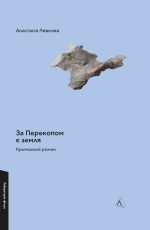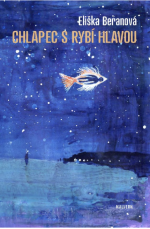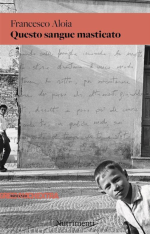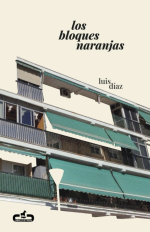View all filters
Clear
Un ronzio
Translated from
Romanian
to
Italian
by Andreaa David
Written in Romanian by Lavinia Braniște
9 minutes read

Přibližně v ten samý okamžik mě pohltilo město
Translated from
Ukranian
to
Czech
by Adéla Mikešová
Written in Ukranian by Anastasia Levkova
8 minutes read

Dečak s ribljom glavom
Translated from
Czech
to
Serbian
by Jelena Đorđević
Written in Czech by Eliška Beranová
8 minutes read

Acest sânge mestecat
Translated from
Italian
to
Romanian
by George Doru Ivan
Written in Italian by Francesco Aloia
10 minutes read
Dopo l’ultima cena
Translated from
Portugese
to
Italian
by Francesca Leotta
Written in Portugese by José Gardeazabal
8 minutes read
Lampi
Written in Italian by Sara Micello
7 minutes read
Ptice ne preletavajo primestnih naselij
Translated from
Serbian
to
Slovenian
by Natalija Milovanović
Written in Serbian by Ana Marija Grbic
8 minutes read
Nekoliko meseci kasnije
Translated from
Slovenian
to
Serbian
by Jelena Dedeić
Written in Slovenian by Andraž Rožman
9 minutes read

Pomarańczowe bloki
Translated from
Spanish
to
Polish
by Justyna Sterna
Written in Spanish by Luis Díaz
7 minutes read
Bestie voi tutte dei campi
Translated from
Spanish
to
Italian
by Ilaria Garelli
Written in Spanish by Adriana Murad Konings
8 minutes read
Mâine
Translated from
Portugese
to
Romanian
by Iolanda Vasile
Written in Portugese by Patrícia Patriarca
8 minutes read

Хлопець з риб’ячою головою
Translated from
Czech
to
Ukranian
by Olha-Anastasiia Futoran
Written in Czech by Eliška Beranová
8 minutes read

Помаранчеві блоки
Translated from
Spanish
to
Ukranian
by Oleksandra Laktionova
Written in Spanish by Luis Díaz
7 minutes read
Cómo acabaremos siendo menos
Translated from
Dutch
to
Spanish
by Guillermo Briz
Written in Dutch by Rebekka de Wit
9 minutes read
Un automobil din Grecia antică
Translated from
Czech
to
Romanian
by Mircea Dan Duță
Written in Czech by Ondrej Macl
11 minutes read

Момчето с рибята глава
Translated from
Czech
to
Bulgarian
by Katerina Stoyanova
Written in Czech by Eliška Beranová
8 minutes read
Starogrški avtomobil
Translated from
Czech
to
Slovenian
by Vesna Dragar
Written in Czech by Ondrej Macl
9 minutes read

Ta przeżuta krew
Translated from
Italian
to
Polish
by Amina Niepsuj-Wood
Written in Italian by Francesco Aloia
8 minutes read

Имало едно време Крим
Translated from
Ukranian
to
Bulgarian
by Dayana Gocova
Written in Ukranian by Anastasia Levkova
8 minutes read

Ta prežvečena kri
Translated from
Italian
to
Slovenian
by Zarja Lampret Prešeren
Written in Italian by Francesco Aloia
9 minutes read